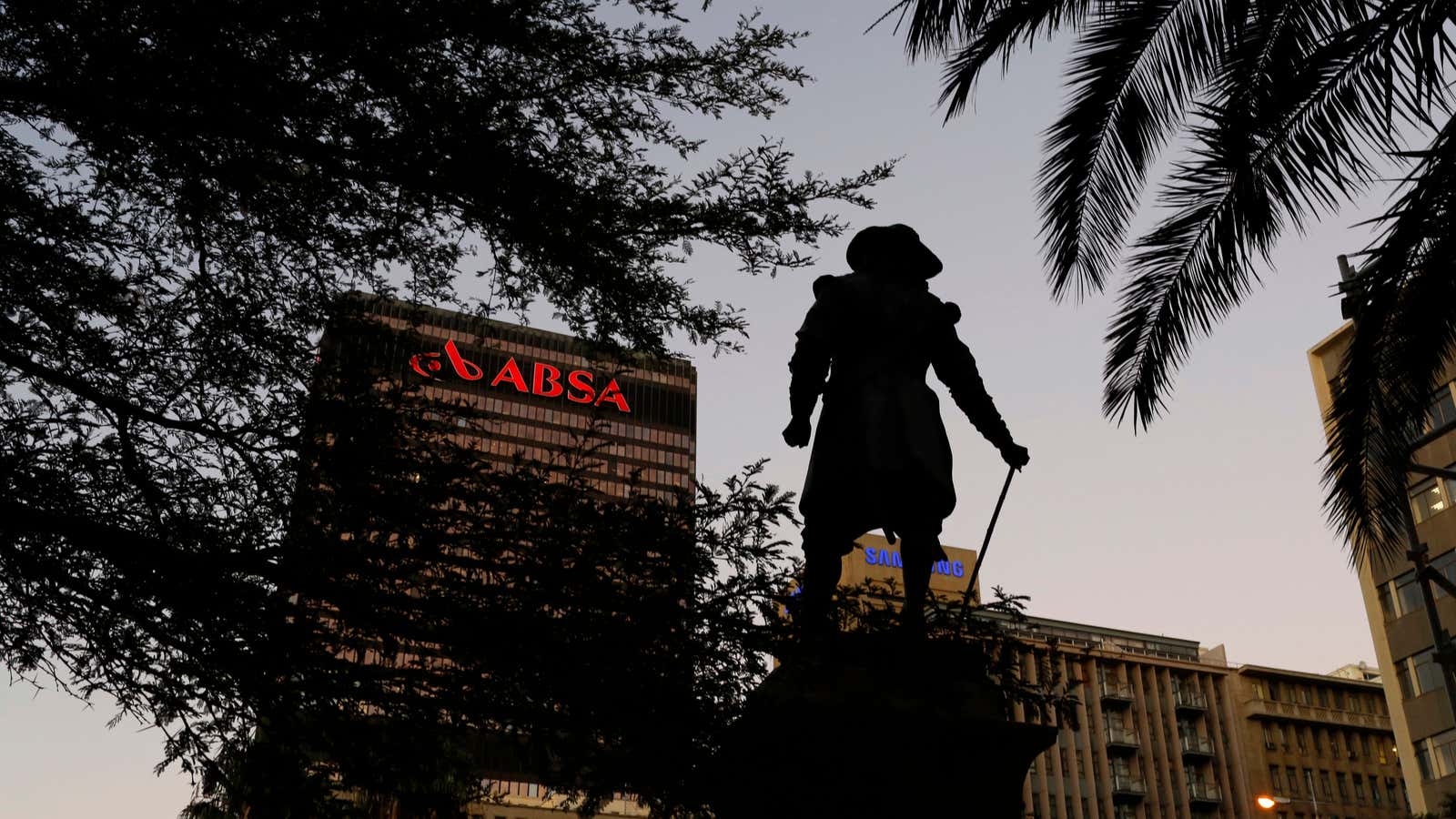One of South Africa’s largest banks may have to pay back a questionable bailout it received during the apartheid era. A leaked preliminary report by the public protector, South Africa’s constitutional watchdog, shows that Absa bank possibly unduly benefitted from corrupt apartheid-era transactions, the Mail and Guardian newspaper (paywall) reported on Jan. 13.
The leaked report further suggests that South Africa’s post-apartheid government knew about this, and did nothing. It’s a reminder of apartheid’s enduring financial legacy, with many of today’s well-known financial-services brands rooted in the country’s dark past.
The payments were made to Bankorp, part of a group of banks that were merged to create the Amalgamated Banks of South Africa, or Absa, in 1991. Bankorp was itself a group of three banks, and by the 1980s it was struggling to stay afloat. From 1985 to 1992, the apartheid government made a series of lifeboat payments to the group from the national treasury, which in turn benefited the government.
After smaller earlier payments, the national treasury devised a longer-term scheme. Over the course of five years, the Reserve Bank printed an extra 1.5 billion rand, diluting the currency’s value to save the bank. It then made loans to Banbol, a company owned by Bankorp and what was then known as Boland Bank (now part of another large South African bank, Nedbank).
That money was then transferred from Banbol to Bankorp. It was then reinvested, sending the money back to the National Party-led government’s coffers, at a profit. Bankorp bought government bonds worth 1.1 billion rand at 16% interest and invested 400 million back into the Reserve Bank, also at 16% interest. At the time, the historical rand to dollar exchange rate hovered at $1 to 2 rand. Bankorp made 1.125 billion rand over five years from the transactions, according to the report.
The public protector’s preliminary report recommended that Absa now pay back that 1.125 billion rand. In a statement, the bank said it was regrettable that the report was leaked to the public “before further submissions and finalization because in its current form it perpetuates an incorrect view that Absa Bank Ltd was the beneficiary of undue SA Reserve Bank assistance.”
While many of its current executives have no knowledge of transactions from over 20 years ago, Absa is cooperating with the public protector’s office and will respond to the preliminary findings, the statement said. Absa is part of the Barclays Africa group, acquired in 2013.
The transactions first came to light 1997 after an investigation led by former MI6 operative Michael Oatley, according to the Mail and Guardian. That investigation recommended that the money be recovered but was never implemented.
Another 154-page report (pdf) headed by a panel of judges and financial experts and published in 2000 also found that the bailouts were unlawful. But that panel suggested that Bankorp’s former shareholder, Sanlam—also an apartheid-era entity that today is one of South Africa’s largest financial services firms—should be held liable. It seems no action was taken after these findings either.
Now the public protector’s office wants to know why South Africa’s post-apartheid government did not recover the money. The report will be finalized once all parties have responded by the Feb. 28 deadline.
